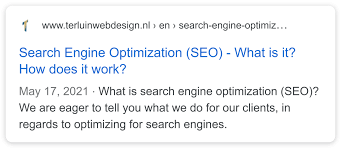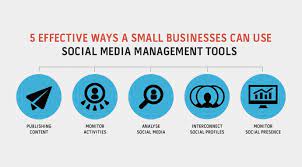Basic Search Engine Optimization
In the digital age, having a strong online presence is crucial for businesses and individuals alike. Search Engine Optimization (SEO) plays a key role in improving your website’s visibility and ranking on search engine results pages. Here are some basic SEO principles to help you get started:
Keywords
Keywords are the foundation of SEO. Identify relevant keywords related to your content and incorporate them strategically into your website’s copy, meta tags, and headings.
Quality Content
Create high-quality, engaging content that provides value to your audience. Search engines favor websites that offer informative and original content.
Meta Tags
Optimize your meta tags, including meta titles and descriptions, to accurately reflect the content of each webpage. This helps search engines understand the relevance of your pages.
Image Optimization
Optimize images on your website by using descriptive filenames and alt text. This not only improves accessibility but also helps search engines index your images.
Mobile-Friendliness
Ensure that your website is mobile-friendly and responsive. With the increasing use of mobile devices, search engines prioritize mobile-optimized websites in their rankings.
Link Building
Build quality backlinks from reputable websites to improve your site’s authority and credibility in the eyes of search engines.
Regular Updates
Maintain a consistent schedule of updating your website with fresh content. Regular updates signal to search engines that your site is active and relevant.
By implementing these basic SEO practices, you can enhance your website’s visibility, attract more organic traffic, and ultimately improve your online presence.
9 Essential Tips for Boosting Your Website’s SEO Performance
- Choose relevant keywords for your content
- Optimize your website’s meta tags (title, description, etc.)
- Create high-quality and engaging content
- Improve website loading speed
- Use descriptive URLs for your web pages
- Optimize images with appropriate alt text
- Build quality backlinks from reputable websites
- Make sure your website is mobile-friendly
- Regularly monitor and analyze your SEO performance
Choose relevant keywords for your content
Selecting appropriate keywords for your content is a fundamental aspect of effective search engine optimization. By choosing relevant keywords that accurately reflect the topic and intent of your content, you increase the likelihood of your website being discovered by users searching for information related to those keywords. Thoughtful keyword selection not only improves your website’s visibility on search engine results pages but also enhances the overall user experience by providing valuable and targeted content to your audience.
Optimize your website’s meta tags (title, description, etc.)
Optimizing your website’s meta tags, including the title and description, is a crucial aspect of basic search engine optimization. These meta tags provide search engines with valuable information about the content of your webpages, helping them understand the relevance of your site to users’ search queries. By crafting compelling and relevant meta tags that accurately reflect your content, you can improve the chances of your website appearing in search engine results and attract more organic traffic to your site.
Create high-quality and engaging content
Creating high-quality and engaging content is a fundamental aspect of effective search engine optimization. By producing content that is informative, original, and valuable to your target audience, you not only enhance user experience but also increase the likelihood of your website being ranked higher in search engine results. Engaging content that resonates with readers encourages them to stay longer on your site, reduces bounce rates, and can lead to higher conversion rates. Ultimately, prioritizing quality content creation is key to building credibility, authority, and visibility for your website in the competitive online landscape.
Improve website loading speed
Improving website loading speed is a crucial aspect of basic search engine optimization. A fast-loading website not only enhances user experience but also plays a significant role in SEO rankings. Search engines prioritize websites that load quickly, as it indicates efficiency and user-friendliness. By optimizing images, minimizing HTTP requests, leveraging browser caching, and utilizing content delivery networks (CDNs), you can boost your website’s loading speed and positively impact your SEO performance.
Use descriptive URLs for your web pages
When it comes to basic search engine optimization, using descriptive URLs for your web pages can significantly impact your website’s visibility and ranking. By incorporating relevant keywords and clear descriptions in your URLs, you not only make it easier for search engines to understand the content of your pages but also improve the user experience. Descriptive URLs provide valuable information to both search engines and visitors, ultimately helping drive organic traffic to your website.
Optimize images with appropriate alt text
Optimizing images with appropriate alt text is a crucial aspect of basic search engine optimization. Alt text not only improves accessibility for visually impaired users but also helps search engines understand the content of images on your website. By using descriptive alt text that accurately reflects the image, you can enhance your website’s SEO performance and increase the likelihood of your images appearing in relevant search results. Including keywords in alt text can further improve your website’s visibility and drive organic traffic to your site.
Build quality backlinks from reputable websites
Building quality backlinks from reputable websites is a crucial aspect of search engine optimization. Backlinks act as a vote of confidence from other sites, signaling to search engines that your content is valuable and trustworthy. By establishing connections with authoritative websites in your industry, you not only enhance your site’s credibility but also improve its chances of ranking higher in search results. Quality backlinks can drive organic traffic to your website and contribute to long-term success in the competitive online landscape.
Make sure your website is mobile-friendly
In today’s digital landscape, ensuring that your website is mobile-friendly is essential for a successful online presence. With the increasing number of users accessing the internet through mobile devices, search engines prioritize mobile-friendly websites in their rankings. By optimizing your website for mobile responsiveness, you provide a seamless and user-friendly experience for visitors across all devices, improving engagement and ultimately boosting your site’s visibility and search engine ranking.
Regularly monitor and analyze your SEO performance
Regularly monitoring and analyzing your SEO performance is essential for optimizing your website’s visibility and effectiveness. By tracking key metrics such as organic traffic, keyword rankings, and conversion rates, you can identify areas for improvement and make informed decisions to enhance your SEO strategy. Analyzing this data allows you to understand what is working well and what needs adjustment, ultimately helping you stay competitive in search engine results and attract more relevant traffic to your site.



